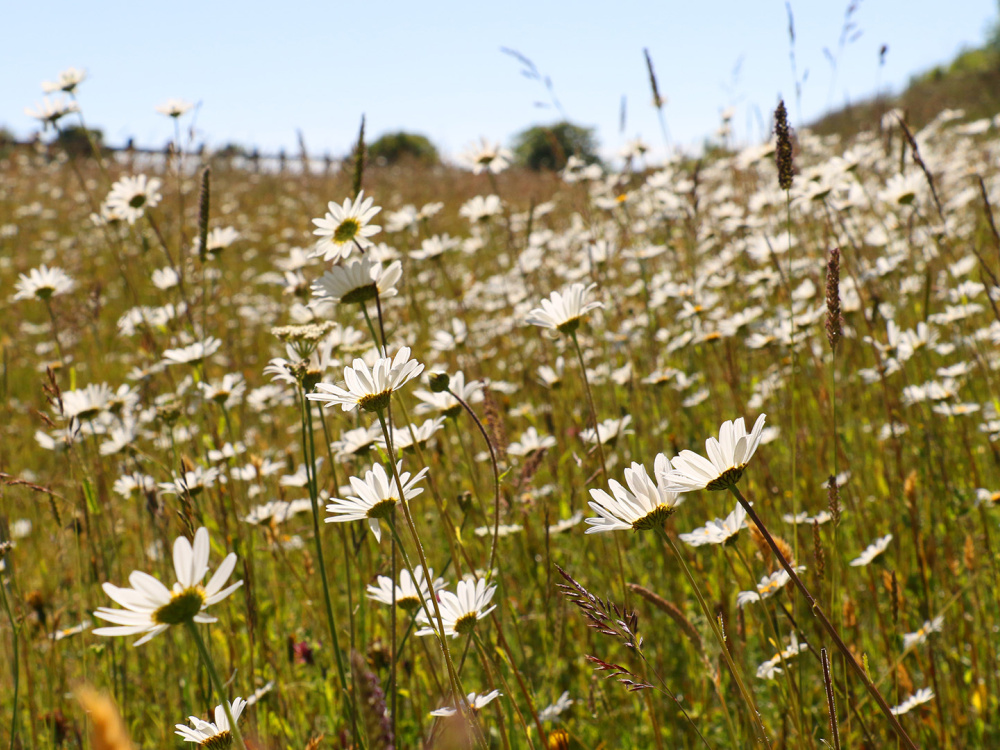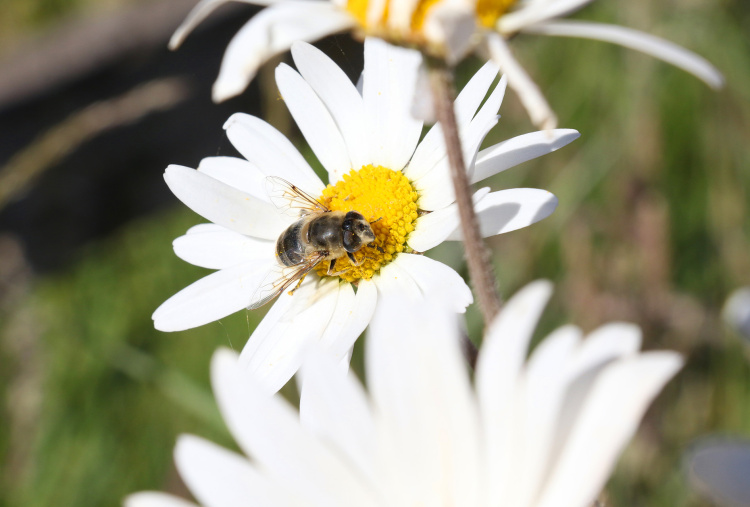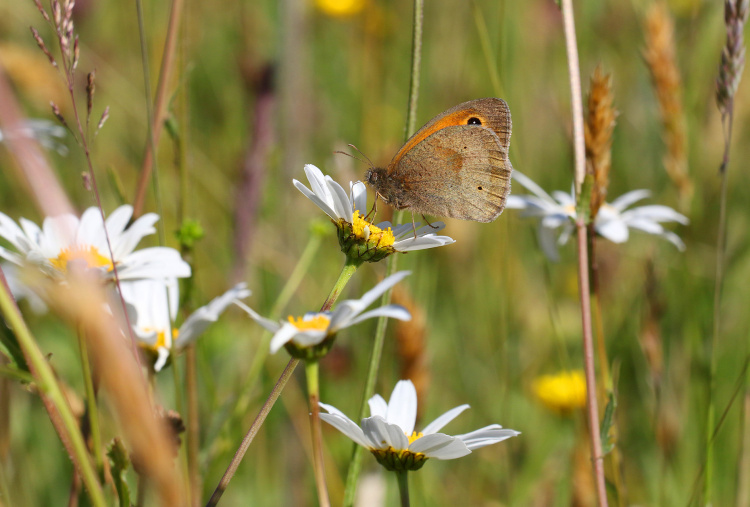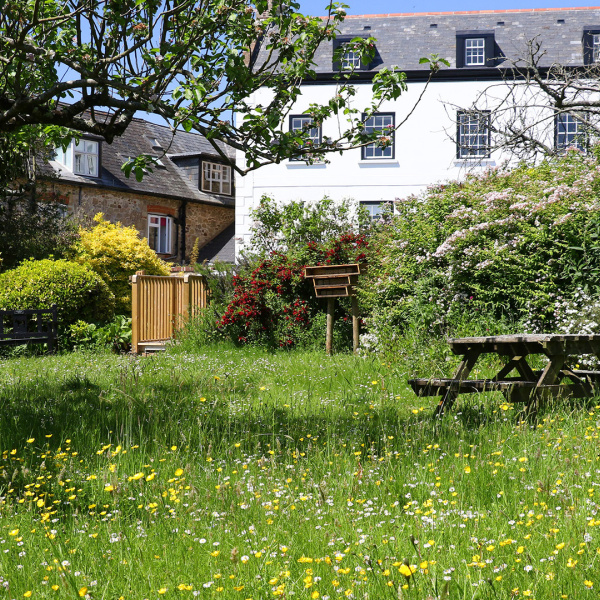This May, parts of our Sidmouth sanctuary will once again be left unmown as part of this year’s No Mow May initiative, allowing plants to burst into life and give pollinators a boost ahead of the summer.
Despite the warmer weather seemingly arriving later this year, the month of May will see a real boom in our flora as the weather and soil starts to warm up.
Wild plant conservation charity Plantlife started the No Mow May initiative in 2019 to encourage gardeners to refrain from mowing during the month of May and let wildflowers and flora grow.
The spring flowers are a vital source of food for pollinators, and leaving the grass to grow a little longer, even for just a few weeks, encourages wildflowers to grow. This is turn is greatly beneficial to pollinating insects such as bees, butterflies, moths and hoverflies. Grass is also an important source of food and shelter for many invertebrates, so leaving areas uncut provides even more benefits.
Another significant date connected with the world of pollination is the United Nations’ World Bee Day on 20 May. Despite its name, the day is not just about bees but highlights the critical contribution made by all pollinators across the world.
Pollinators, which also include beetles, bats, birds and primates, allow many plants, including many food crops, to reproduce. In fact, much of the food that we eat, such as fruits and vegetables, directly rely on pollinators.
Bees and other pollinators are increasingly under threat from human activities, and the UN World Bee Day aims to raise awareness of the importance of pollinators, the threats they face and their contribution to sustainable development.



In addition to helping create a better environment for bees and other pollinators, our Ecology and Conservation team, along with their band of dedicated volunteers, have created ‘bee hotels’, that have been located around the Sidmouth sanctuary.
The simple structures, constructed from lengths of plant stems in a recycled wooden frame, provide a secure home for wild bees and other insects. Several of these can be spotted down the Weston Valley in the Field of Dreams.
In Britain, there are 24 species of bumblebee, one honeybee and around 250 species of solitary bees. Bumblebees and honeybees are social species living in large colonies together, whereas the solitary bees nest alone – although large numbers of solitary bees may be seen when nesting closely together.
Helen Cavilla, one of our Ecology and Conservation officers, said: “Many wildflowers such as English bluebell, cuckooflower and primrose, are flowering along our walkways this spring, many popping up where they haven’t been seen before. Two of the most nectar-rich species on the walkways are the dandelion and common daisy – many pollinators rely on them, especially in the cooler times of early spring.
“Providing spaces for wildflowers and grasses is so important and the more diverse the spaces are botanically and structurally, the more diverse fauna they are able to support.”
No Mow May encourages people to do their bit to help wildlife thrive, but not just gardens and lawns – local councils are also asked to let verges grow a bit longer where it is safe to do so, and give nature a head start.
Our hardworking maintenance team and gardeners keep our footpaths across the sanctuary looking amazing, and revised cutting schedules also allow wildflowers to boom in the margins, creating an increased habitat and feeding grounds for pollinators and a colourful spectacle for our staff and visitors.
Simple habitat improvement is hugely important at a time of widespread biodiversity crisis. This is good news for everyone, including our resident donkeys who benefit from the enriched environment.
Discover more about our Ecology and Conservation team
Find out how they enrich our donkeys lives through environmental stewardship
